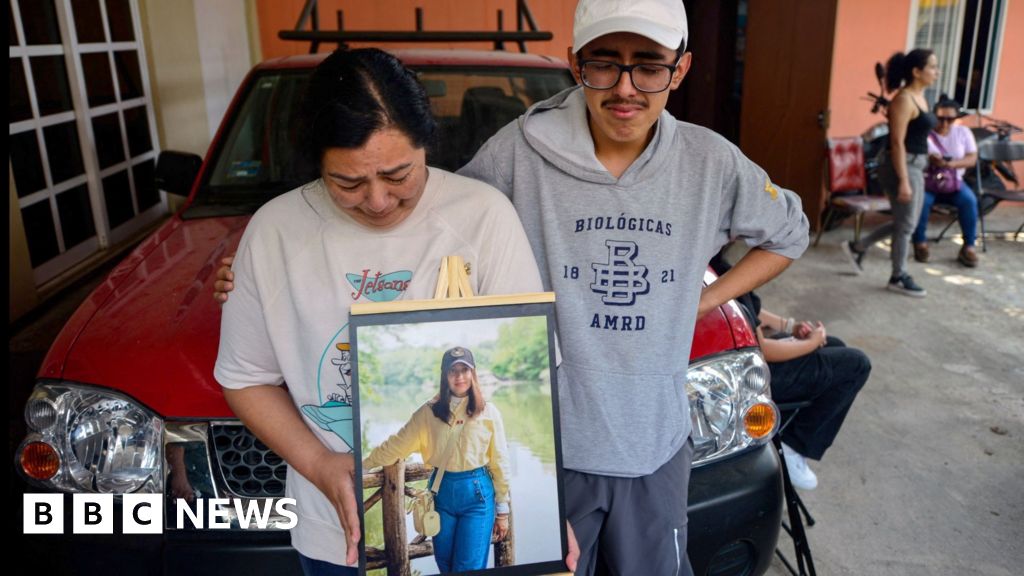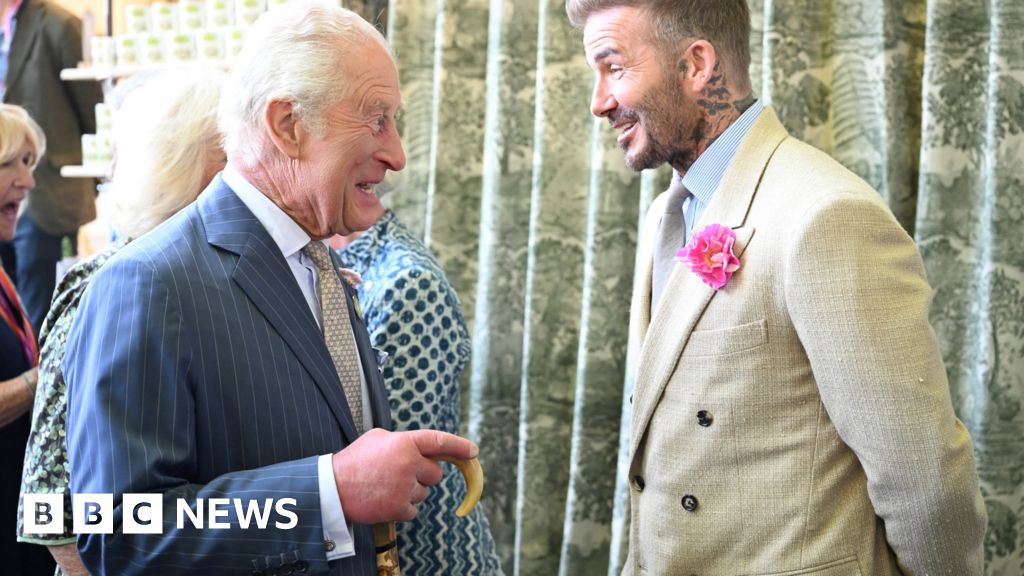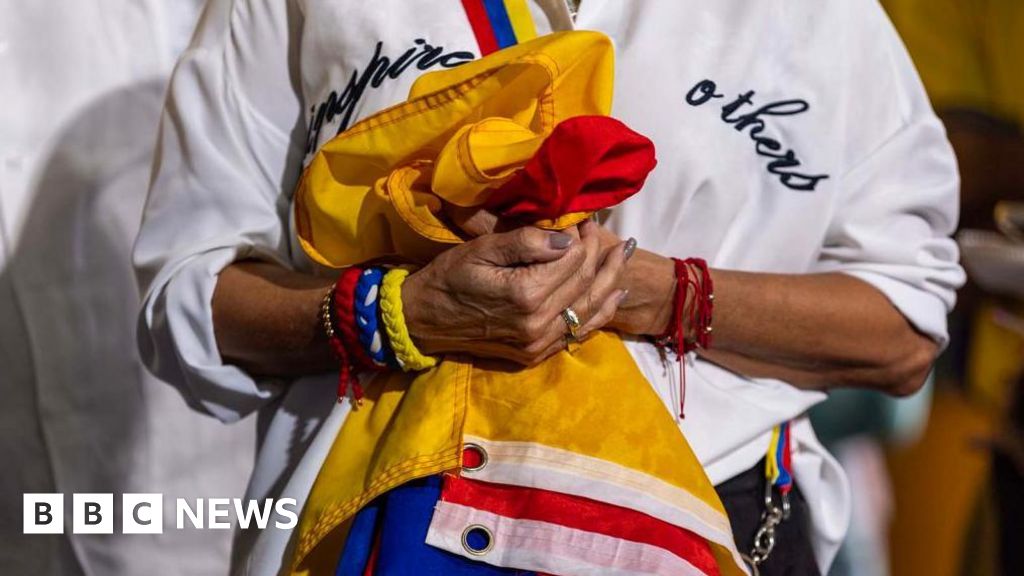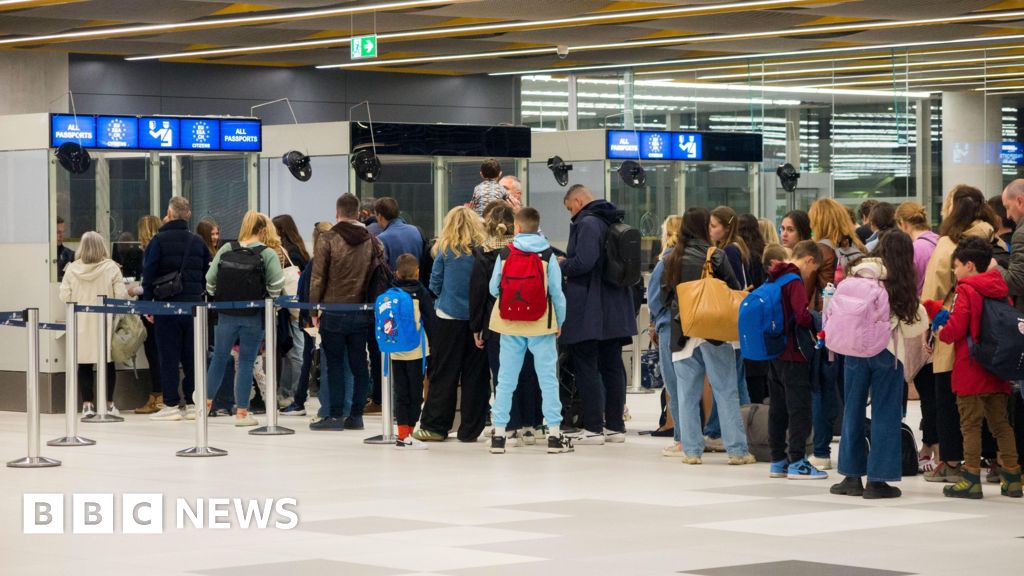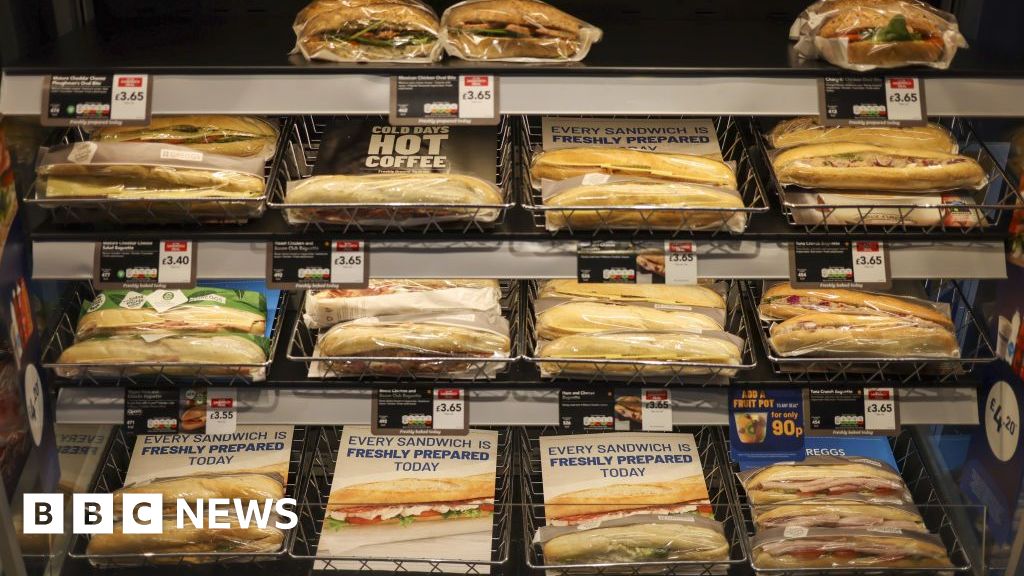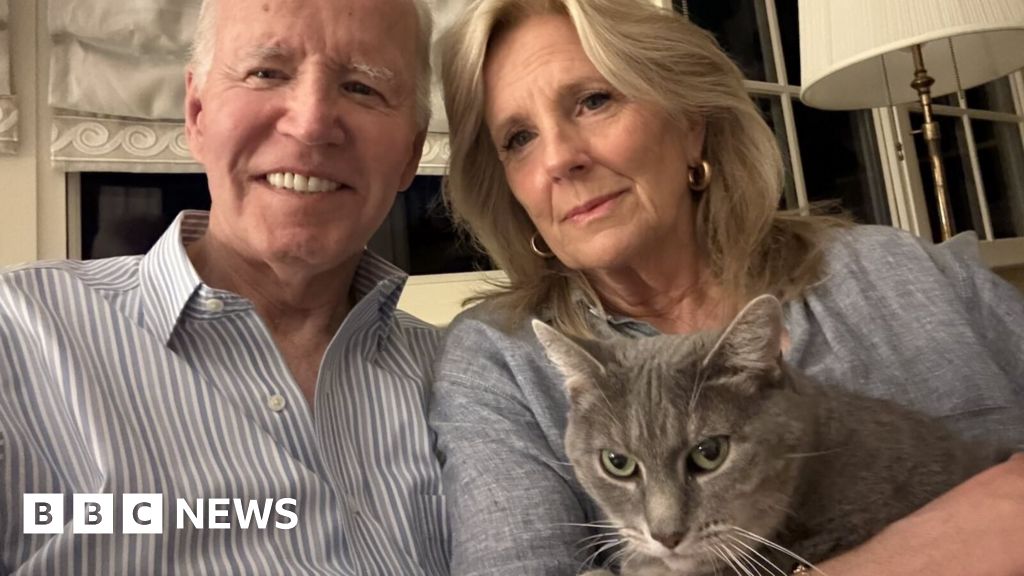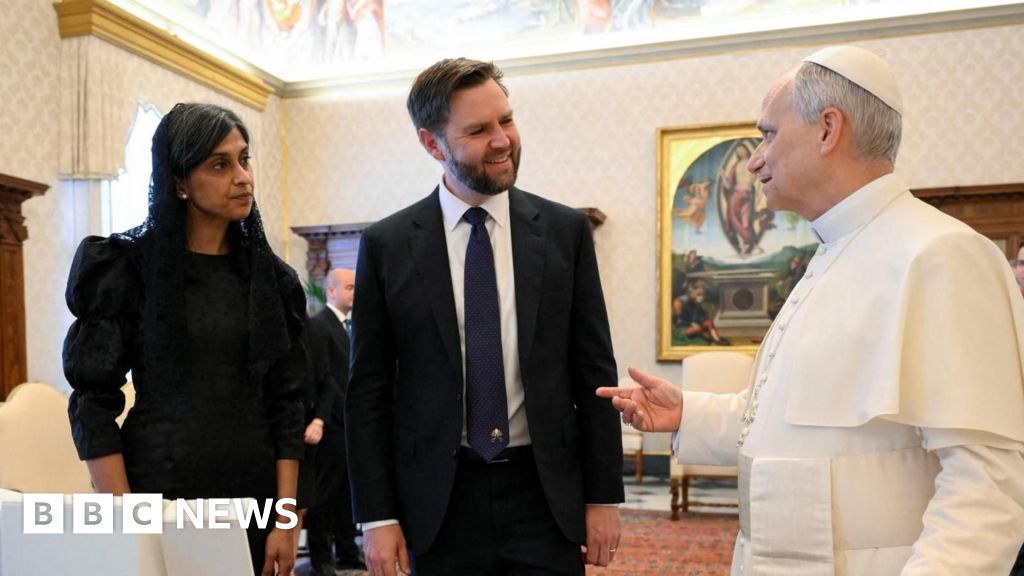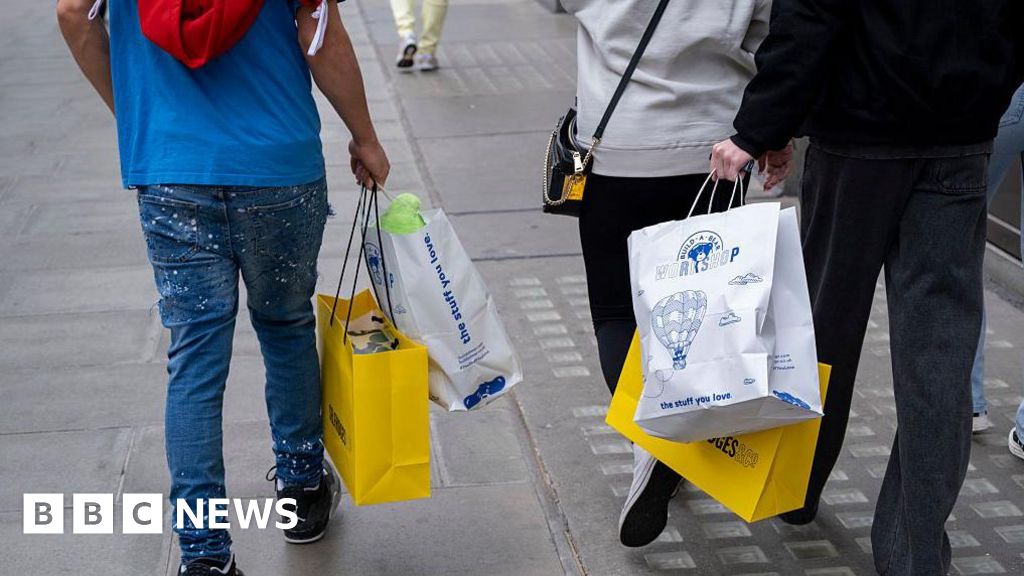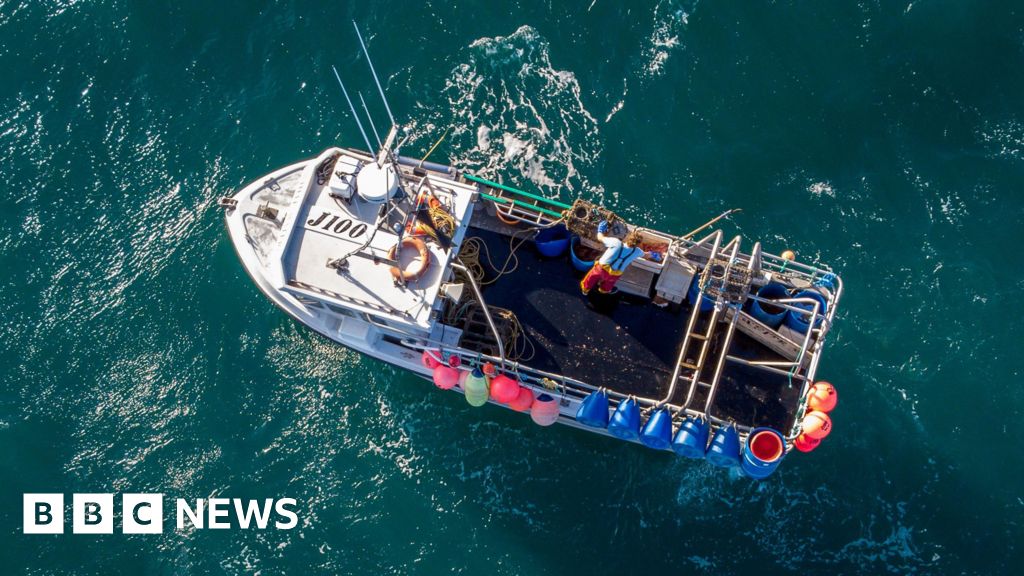
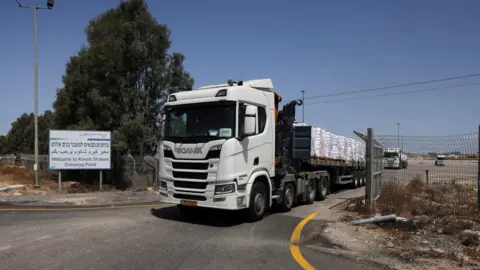 Reuters
Reuters
Aid lorries were photographed arriving at the Israeli-controlled Kerem Shalom crossing with southern Gaza on Monday morning
An Israeli military body says it has allowed five UN lorries carrying humanitarian aid, including baby food, into the Gaza Strip after 11 weeks of blockade.
Prime Minister Benjamin Netanyahu said his decision to let in a "minimal" amount of food for the 2.1 million Palestinians in the territory followed pressure from allies in the US Senate.
"We must not reach a situation of famine, both from a practical and a diplomatic standpoint," he stressed in a video in response to criticism of the move in Israel.
Netanyahu said food deliveries would continue only until the Israeli military and private companies had set up hubs to distribute aid under a US-backed plan that the UN has rejected.
He also declared Israeli forces would "take control of all areas" of Gaza as part of the expanded ground offensive against Hamas the Israeli military began on Sunday.
Meanwhile, Israeli air strikes killed at least 40 people across the territory on Monday, according to first responders and hospitals.
One strike reportedly killed five people at a school being used as a shelter for displaced families in Nuseirat refugee camp, in central Gaza.
The Israeli military said it struck "Hamas terrorists" who were operating inside a command-and-control centre in the area.
It also ordered the evacuation of the southern city of Khan Younis and its eastern suburbs, warning residents that it was about to launch an "unprecedented attack" there.
Israel stopped all deliveries of humanitarian aid and commercial supplies to Gaza on 2 March and resumed its military offensive two weeks later, ending a two-month ceasefire with Hamas.
It said the steps were meant to put pressure on the armed group to release the hostages still held in Gaza.
The resumed Israeli bombardment and ground operation have reportedly killed more than 3,000 people and displaced 400,000 others, while the UN says the blockade has caused severe shortages of food, medicine and fuel.
Last week, the Hamas-run health ministry reported 57 children had died from the effects of malnutrition over the past 11 weeks, and an assessment by the UN-backed Integrated Food Security Phase Classification (IPC) warned half a million people faced starvation.
The UN said Israel was obliged under international humanitarian law to ensure food and medical supplies for Gaza's population. Israeli officials said there was no shortage of aid because thousands of lorry loads had gone into Gaza during the ceasefire. They accused Hamas of stealing supplies, which the group denied.
But after pressure from Israel's allies increased, the Israeli prime minister's office announced on Sunday night it would "allow a basic quantity of food to be brought in for the population in order to make certain that no starvation crisis develops in the Gaza Strip".
Israeli right-wing politicians and activists were quick to assail the abrupt policy change. Far-right National Security Minister Itamar Ben-Gvir called it "a grave mistake" that would "fuel Hamas and give it oxygen while our hostages languish in tunnels".
In a video posted on social media on Monday in response to the criticism, Netanyahu did not make humanitarian arguments when he explained the decision to let in some food.
"Since the beginning of the war, we said that in order to achieve victory - to defeat Hamas and to free all our hostages, two missions that are intertwined - there is one necessary condition: We must not reach a situation of famine, both from a practical and a diplomatic standpoint," he said.
He said he had blocked aid deliveries via the UN and other humanitarian organisations because of looting by Hamas, and he was now pursuing a "different method" involving a US-backed non-governmental organisation, the Gaza Humanitarian Foundation, distributing aid from hubs protected by security contractors and the Israel Defense Forces (IDF).
However, he warned a "red line" was now approaching and "our best friends in the world, [US] senators whom I know as passionate supporters of Israel", had voiced concerns.
"They come to me and say this: 'We're giving you all the support to achieve victory... But there's one thing we cannot accept. We cannot handle images of starvation'."
"And so, in order to achieve victory, we must somehow solve this problem. Until we establish those distribution points, and until we build a sterile area under IDF control for distributing food and medicine, we need to provide a minimal, basic bridge - just enough to prevent hunger," he added.
Finance Minister Bezalel Smotrich, another far-right leader, sought to smooth over the decision by urging the Israeli public to focus on the big picture.
Smotrich - who advocates building new Israeli settlements in Gaza - said the military offensive was meant to force Palestinians to the south of the territory "and from there, with God's help, to third countries", permanently displacing them.

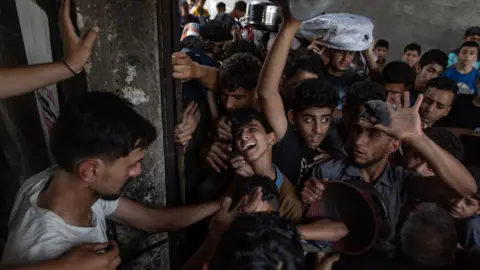 EPA
EPA
Around 115 of the 180 community kitchens in Gaza had been forced to shut down by last Wednesday due to the lack of supplies
On Monday evening, Israeli military body Cogat announced five UN lorries carrying humanitarian aid, including food for babies, had entered Gaza via the Kerem Shalom crossing "following the recommendation of professional IDF officials and in accordance with the directive of the political echelon".
The director general of the Israeli foreign ministry, Eden Bar Tal, earlier told reporters that "in the coming days, Israel will facilitate the entry of dozens of aid trucks".
The UN Office for the Co-ordination of Humanitarian Affairs (Ocha) also said it had been "approached by Israeli authorities to resume limited aid delivery, and we are in discussions with them now on how this would take place given the conditions on the ground".
The head of the US-based charity World Central Kitchen, meanwhile, questioned a claim by a senior Israeli official that preparations for the aid plan mentioned by Netanyahu would be completed in about a week.
"This is not true. Will take weeks," chef José Andrés wrote on X. "This plan will leave Palestinians hungry. The new humanitarian foundation members should be ashamed of themselves… We already have a system in place to feed all Palestinians with the help of Palestinians."
The UN and other aid agencies have said they have about 8,900 lorry loads of humanitarian aid already in position and ready to enter Gaza, as well as a plan to ensure it is delivered directly to civilians in need without being stolen.
They have also insisted they will not co-operate with the Israeli-US plan to distribute aid from hubs located mostly in the south of Gaza, saying it contradicts their fundamental humanitarian principles of impartiality, independence and neutrality.
They have warned it will practically exclude those with mobility issues, including those with disabilities and the elderly, force further displacement, expose thousands of people to harm, make aid conditional on political and military aims, and set an unacceptable precedent for aid delivery around the world.
A displaced Palestinian man living in the coastal al-Mawasi area west of Khan Younis with his wife and two children, aged nine and two, said they were currently able to eat one meal a day thanks to "significant rationing".
"Getting access to food, medicine and hygiene products has become extremely difficult - almost impossible - due to the shortage of these items and their high prices if they are available," Abd al-Fatah Hussein told the BBC in a message.
Mohammed Abu Rijleh meanwhile said his charity, Shabab Gaza (Gaza Youth), had been able to distribute only around 2,500 meals on Monday - far fewer than usual.
He told the BBC by telephone it had been a struggle to find ingredients to cook, forcing him to buy them at high prices from local markets.
Netanyahu also said Israeli forces were engaged in "massive fighting" in Gaza and were making progress.
"We are going to take control of all areas of the Strip, that's what we're going to do," he said.
He said the "main objective" of the expanded offensive was to defeat Hamas and that it would lead to the release of the 58 remaining hostages, up to 23 of whom are believed to be alive.
On Sunday, IDF spokesman Brig Gen Effie Defrin said five divisions were involved in an operation that would include "dividing the territory and distancing the population for its safety". "The only thing that can stop us is the return of our hostages," he added.
While negotiators for Israel and Hamas remain in Qatar, both sides say there has been no breakthrough in a new round of indirect talks on a ceasefire and hostage release deal.
Israel launched a military campaign in Gaza in response Hamas's cross-border attack on 7 October 2023, in which about 1,200 people were killed and 251 others were taken hostage.
At least 53,475 people have been killed in Gaza since then, including 3,340 since the Israeli offensive resumed, according to the territory's health ministry.

 4 hours ago
4
4 hours ago
4

